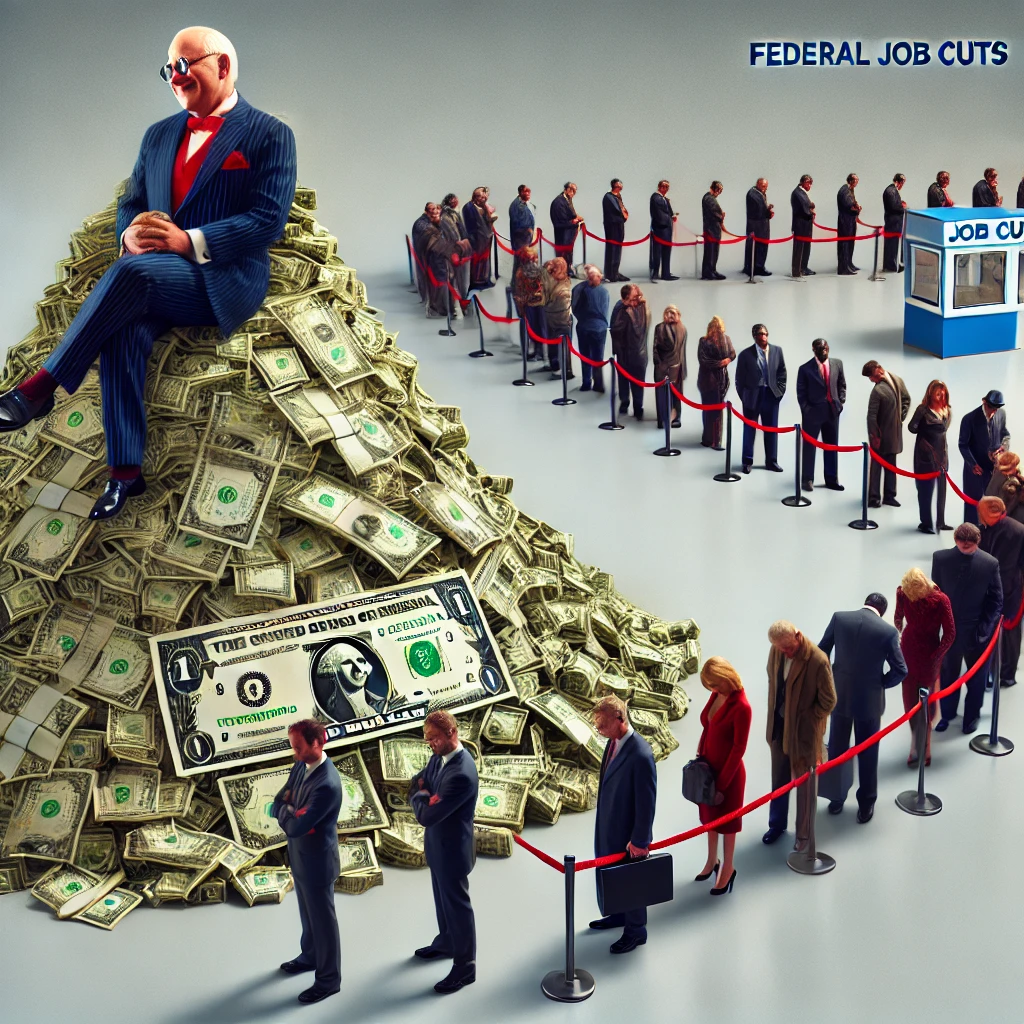Opinion:
The incoming administration, namely Musk, is considering substantial federal workforce reductions, claiming they will address budget deficits and improve efficiency. However, these cuts are poised to make life more difficult for everyday Americans while benefiting billionaires and corporations. These reductions will cripple essential public services, weaken government oversight, and leave citizens with fewer resources in a time of growing demand.
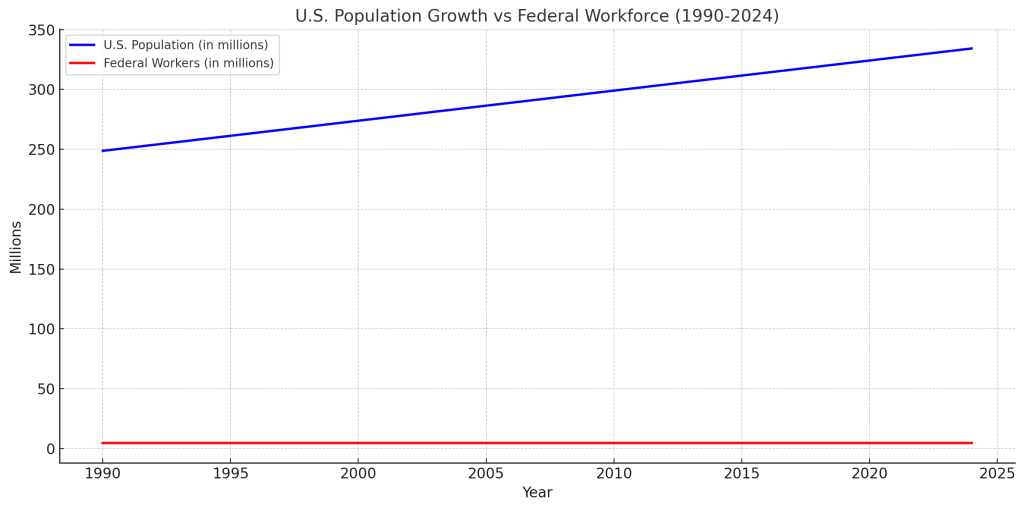
Since 1990, the U.S. population has grown by about 85.5 million people, a 34% increase. Despite this dramatic growth, the federal workforce has remained under 4.5 million employees, roughly the same number as three decades ago. This stagnant workforce means that federal agencies are now serving a population that has grown significantly, stretching their capacity and resources to the limit. Instead of expanding to meet this increased demand, the proposed cuts would further undermine the ability of federal agencies to serve the public.
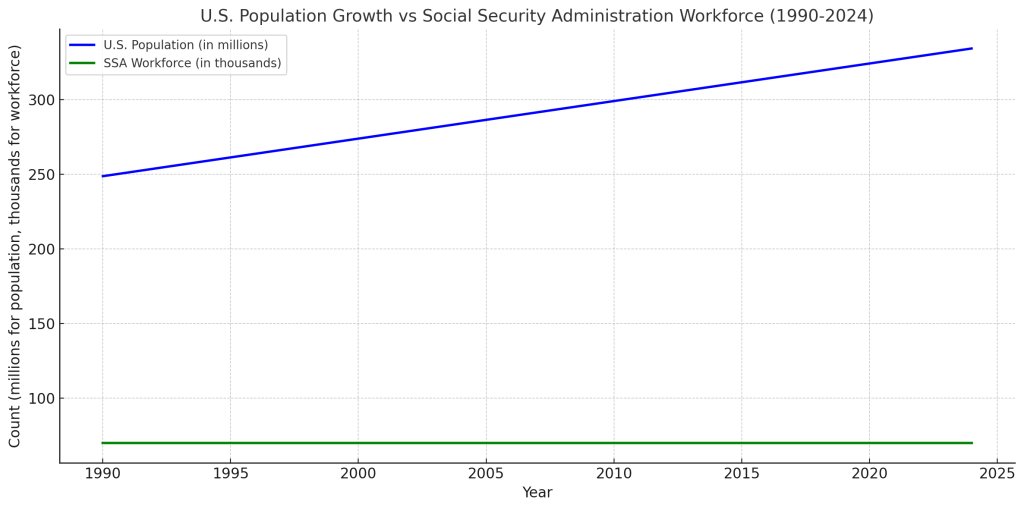
The Social Security Administration with 60,000 employees is among the agencies already struggling to meet the needs of a larger population. Millions of Americans rely on Social Security for retirement and disability benefits, yet the agency faces staffing shortages that have resulted in long wait times and an increasing reliance on automated systems. Proposed cuts will likely exacerbate these problems, forcing more Americans to navigate frustrating AI-driven menus rather than speaking to a human employee who can provide actual assistance. There was a slight uptick under Biden that does not show on the graph as the overall average has remained roughly the same over the years.
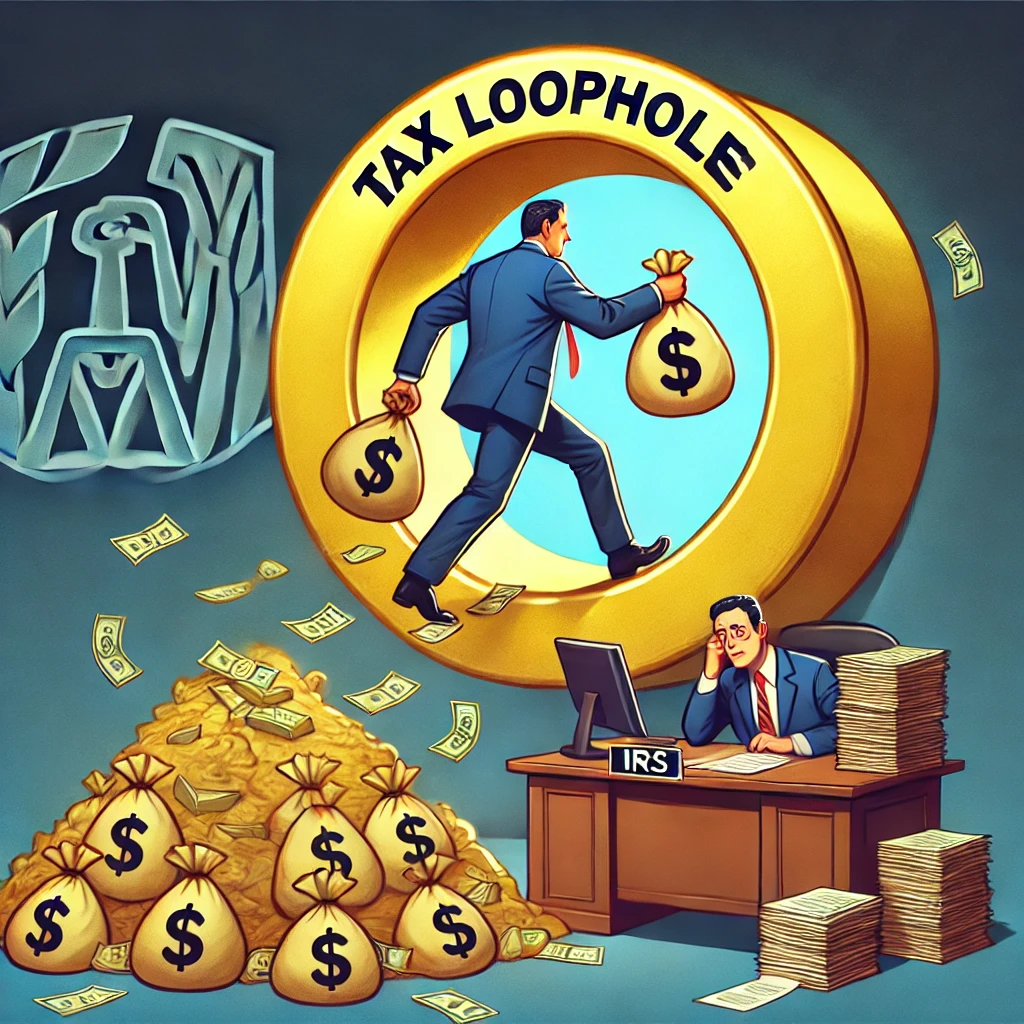
The Internal Revenue Service is also expected to be hit by these cuts, despite its critical role in ensuring tax compliance. Over the years, the IRS has seen its workforce shrink, leaving it unable to audit many high-income individuals and corporations. Further reductions will make it even easier for billionaires and large companies to exploit tax loopholes and evade taxes, depriving the government of much-needed revenue. Ordinary taxpayers, meanwhile, will face longer delays for refunds and reduced access to live support.
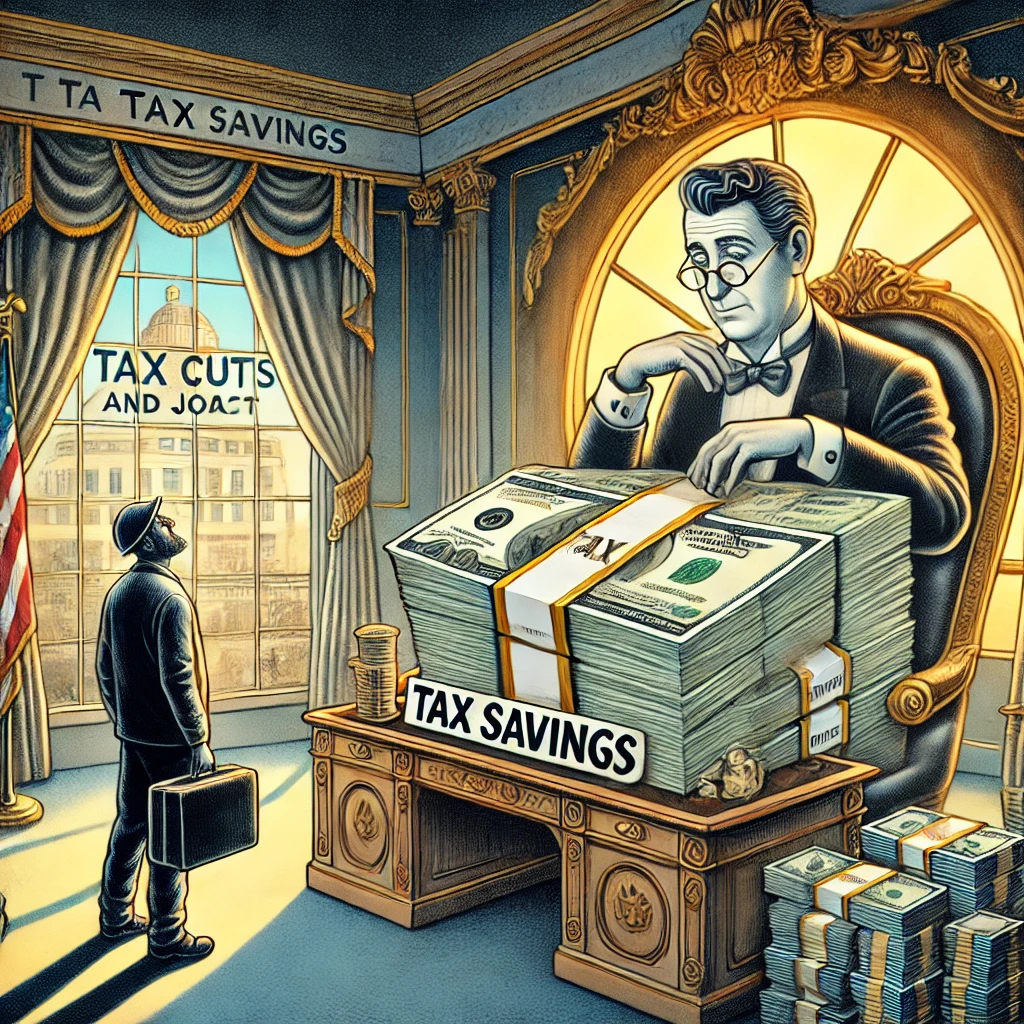
Proponents of these cuts often point to budget deficits as justification, but the reality is that much of the deficit stems from policies that benefit the wealthy. The 2017 Tax Cuts and Jobs Act, for example, significantly reduced corporate tax rates and introduced loopholes that disproportionately benefited billionaires. While proponents promised economic growth, the benefits have largely flowed to the ultra-rich, leaving federal agencies underfunded and unable to meet their growing responsibilities.
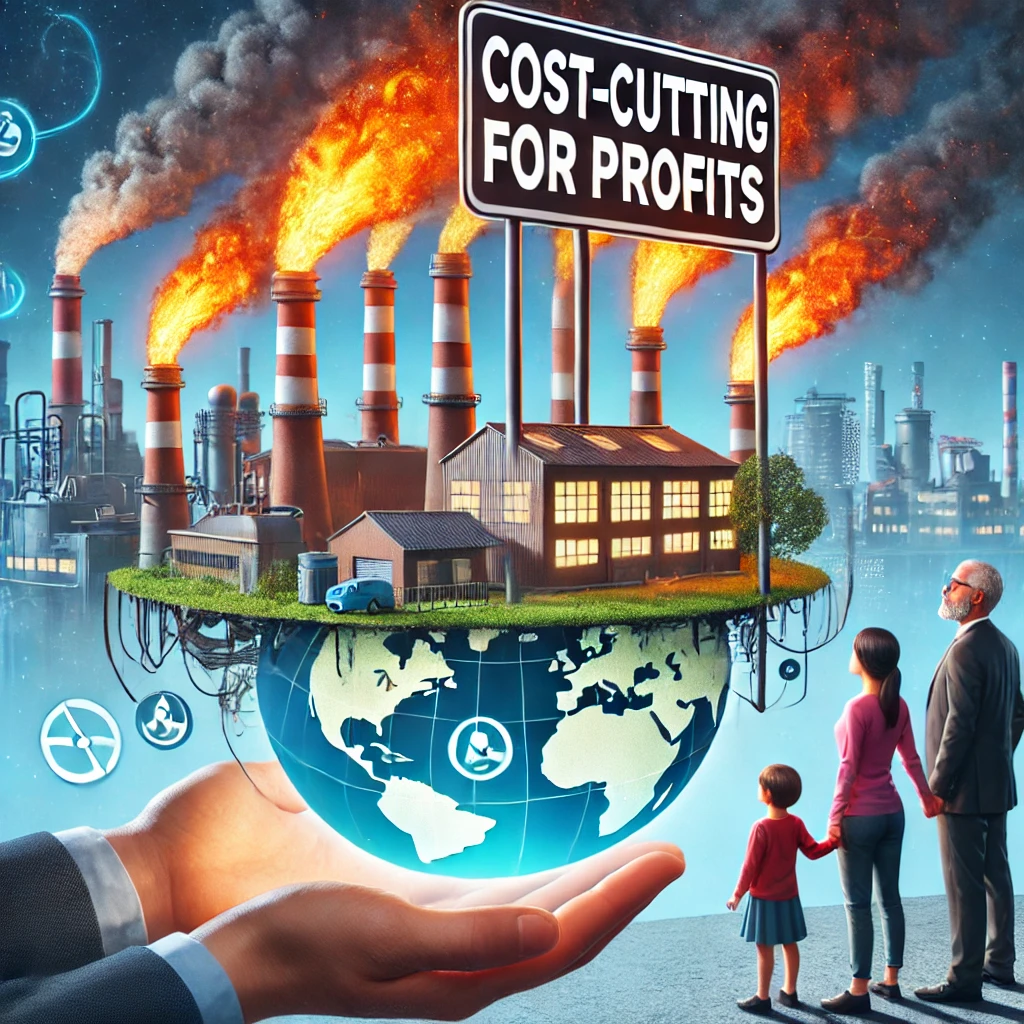
The proposed workforce reductions also threaten to weaken regulatory oversight across industries. Agencies like the Environmental Protection Agency and the Food and Drug Administration have already been operating with limited staff, and further cuts will leave corporations with even less scrutiny. This lack of oversight creates opportunities for cost-cutting measures that prioritize profits over public safety, environmental protections, and consumer health.
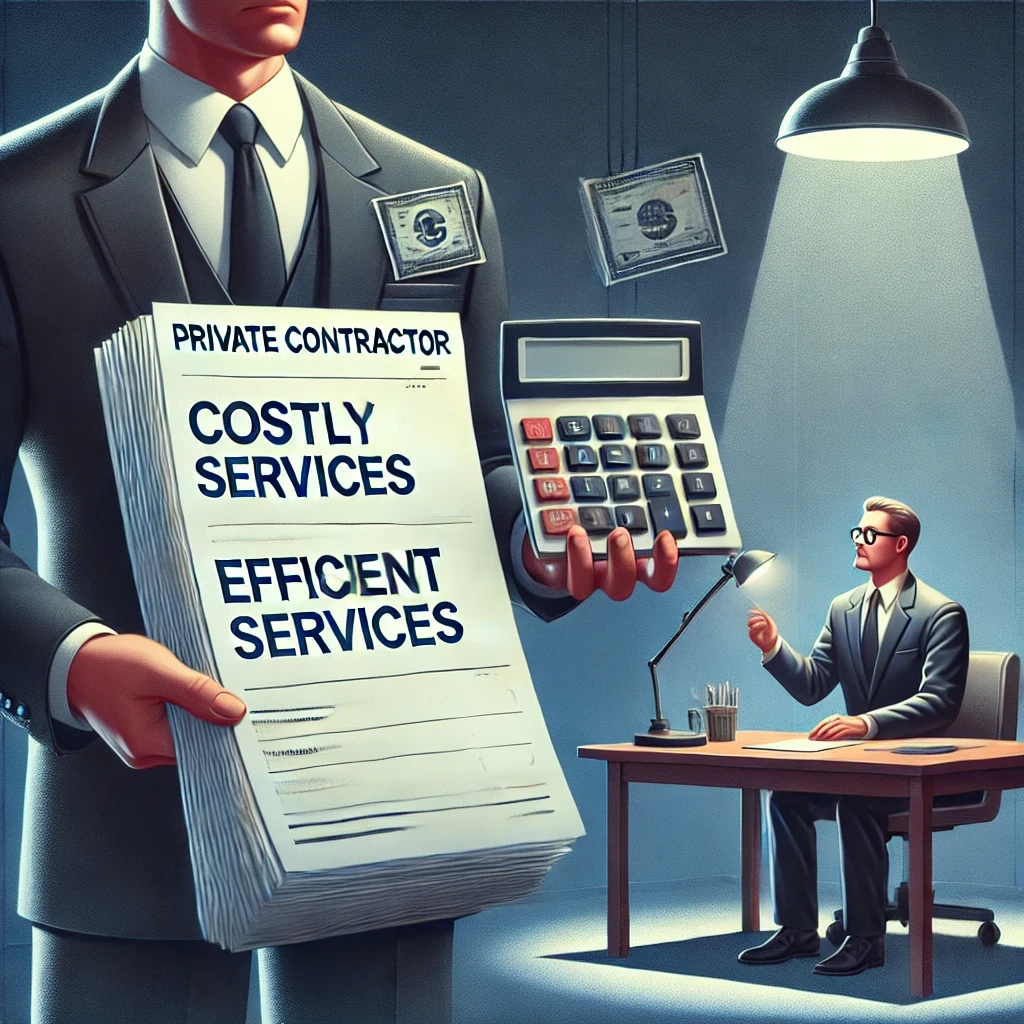
The shift toward automation and outsourcing is often touted as a cost-saving measure, but it frequently leads to higher costs and reduced accountability. Private contractors, who are not subject to the same transparency requirements as federal employees, typically charge more for equivalent tasks. This reliance on privatization does not save taxpayers money; it simply redirects public funds into private hands while diminishing the quality of services.
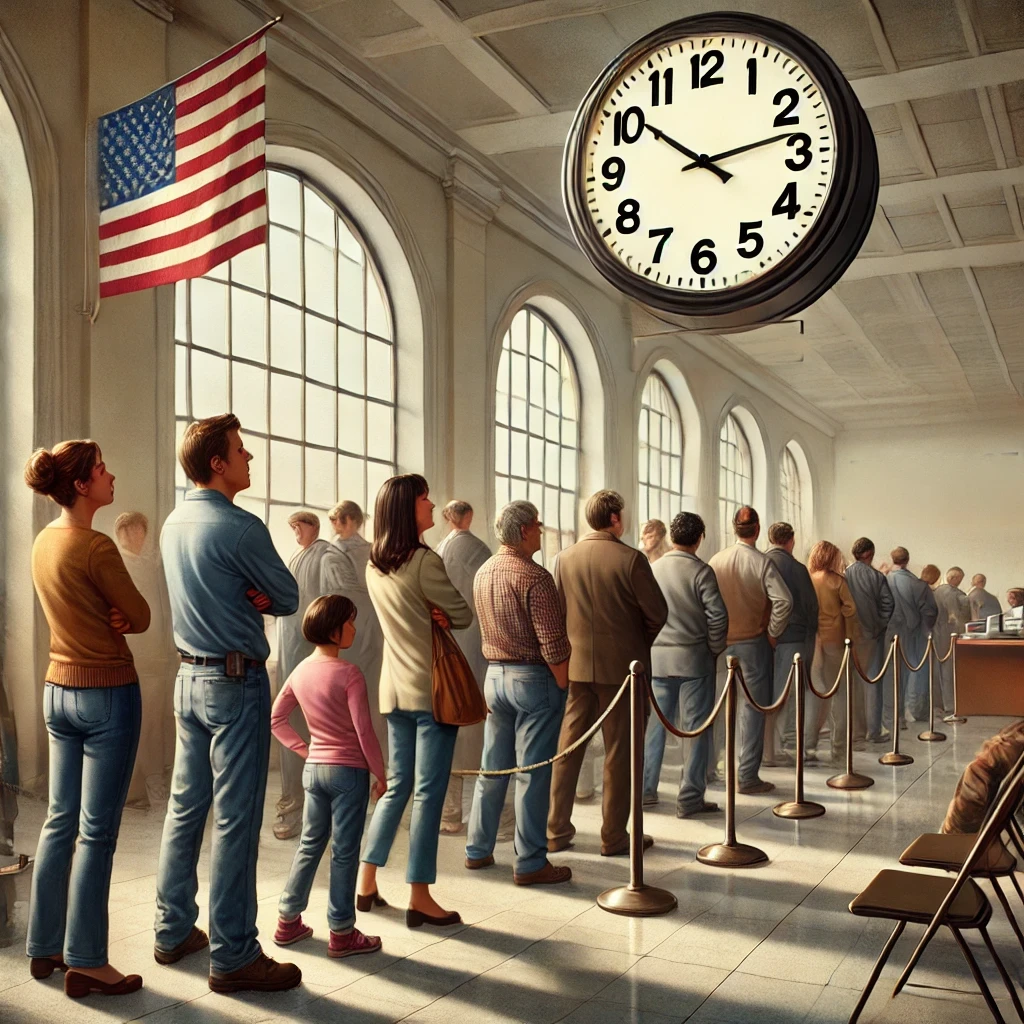
For everyday Americans, these workforce reductions will lead to longer wait times, fewer services, and a government less equipped to address their needs. Those relying on Social Security, housing assistance, or even timely tax refunds will feel the immediate impact of reduced federal staffing. At the same time, billionaires and corporations will benefit from weaker oversight and less enforcement of regulations, further tilting the system in their favor.

These cuts are not about saving money or improving efficiency—they are about shifting power and resources toward the wealthiest Americans. While billionaires and corporations gain from a government with fewer employees to enforce rules and regulations, ordinary citizens will be left navigating a system that is increasingly unresponsive to their needs. This is not a path to fiscal responsibility; it is a path to growing inequality and long frustrating conversations with AI.

